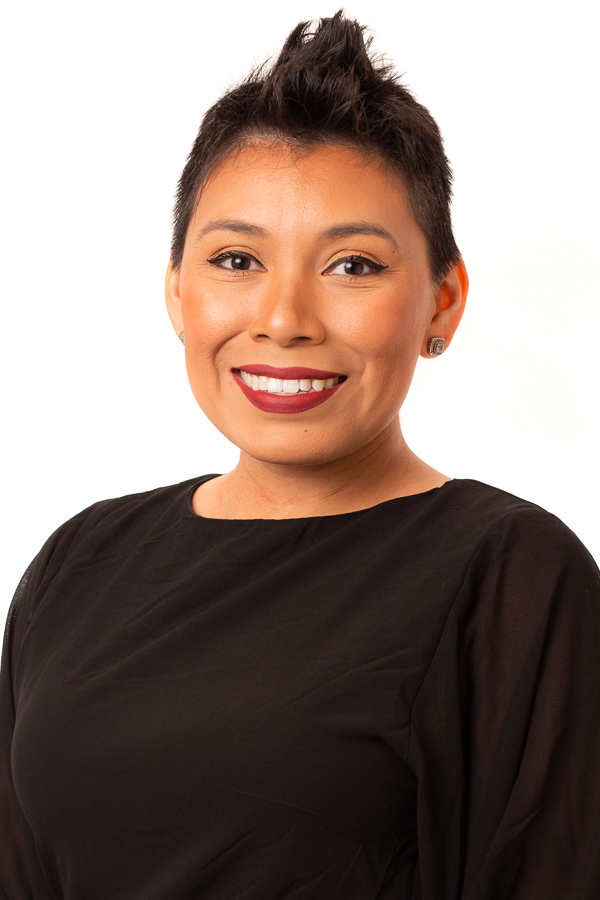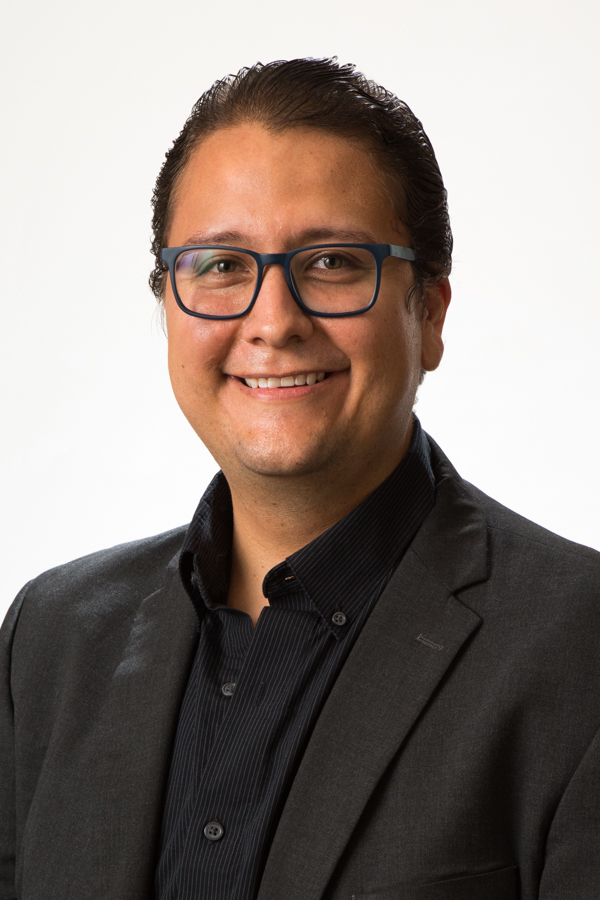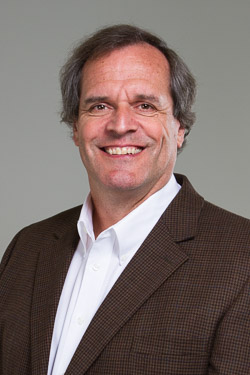
The College of Media & Communication welcomes Lucinda Holt and Gabriel Dominguez Partida, Ph.D., to the Thomas Jay Harris Institute for Hispanic and International Communication (HIHIC). Holt and Partida now serve the HIHIC as the assistant director for external engagement and the assistant director for publications, respectively. Their advancements indicate a commitment to academia, professional pursuit and a greater calling to provide the foremost education for students.
Holt, born and raised in West Texas, brings a passion for her Mexican American roots through her academic advancement as an assistant professor of practice. Holt offers students firsthand experience on the world of journalism while highlighting professional practices, real-world application and critical concepts. For Holt, this was the perfect position.
 “Coming from the newsroom, I still wanted to be engaged in both academia and in media,”
Holt said. “I tried to stay connected through freelance writing. Whenever the professor
of practice position opened up, specifically with Hispanic media as well as serving
as assistant director, I fell in love with the idea of serving the community.”
“Coming from the newsroom, I still wanted to be engaged in both academia and in media,”
Holt said. “I tried to stay connected through freelance writing. Whenever the professor
of practice position opened up, specifically with Hispanic media as well as serving
as assistant director, I fell in love with the idea of serving the community.”
Through the HIHIC, Holt spent time focused on writing her Hispanic-oriented thesis, “Dangerous Lede: Framing and attacks on Mexican Press.” Her thesis earned Best Student Paper honors at the 7th annual Hispanic/Latino Media & Marketing International Conference. Holt recalls a life-threatening experience as a major influence for her thesis and turned it into an opportunity to explore the threats facing Mexican journalists.
“It really allowed me to dive into all of that and recognize everything that happened in my past,” Holt said. “Texas Tech really supported me, specifically the College of Media & Communication, and it felt like this new position was created for me.”
Although Holt is excited to be continuing her career in the college, she recognizes that more work needs to be done to mitigate Hispanic stereotypes.
“While my background may seem unique, it's really not,” Holt said. “My background is common for Latino populations in West Texas. For many Hispanics, we share a similar story of finding our background and combating Hispanic representation in media. I've been really fortunate to be in this position and to serve as a mentor to students in that capacity.”
The importance of carrying life lessons outside of the classroom has always been at the core of Holt's teaching. Building upon her industry experience, Holt hopes to use her position as a freelance journalist as a learning lesson for her students.
“It means the world to me to be in this position because I was a first-generation college student,” Holt said. “I grew up in a very small community. I didn't think I had a whole lot of opportunities lying ahead of me especially since my parents were migrant workers. My parents did the best they could to support me but going through the whole process I was pretty much on my own.”
Although Holt's thesis places an emphasis on Hispanic communities, she doesn't neglect her responsibility to the student body as a whole. Holt aims to ease students' burdens and carry the transformative experience outside of the classroom.
“Regardless of the color of your skin, there are a lot of first-gen students out there,” Holt said. “If I can share my experiences with them and help them make the transition easier, I'm all for it. Serving in this role is a dream come true because it allows me to be vulnerable with the students and share my failures. I have no problem with this because it's a learning process that goes beyond the textbook.”
In addition, Holt's love and compassion for students mirror that of her mother's love. Acts of kindness have always been at the core of Holt's teaching.
“My mom supported me the best she could and that was mostly through food,” Holt said. “If I have leftover food from the holidays, I'll send an email out to my students to come and get some tamales! My family's love language is food and, in that aspect, I get that it's hard for students to find a warm meal.”
Meanwhile, Partida is making similar advances. Originally from Guadalajara, Mexico, Partida received his undergraduate degree in Communication from the Universidad Panamericana and master's degree in Film Studies from the Unversidad de Guadalajara. Recently completing his doctoral degree in Media and Communication from Texas Tech University, Gabriel is excited to officially begin working as assistant director for HIHIC.
 “For me it's fascinating to have the opportunity to formally be in a position to help
the institute,” Partida said. “As a graduate student, I was involved with the activities
of the institute and now formally, it's an honor. I'm very fortunate about this chance
and I'll do my best to fulfill those expectations.”
“For me it's fascinating to have the opportunity to formally be in a position to help
the institute,” Partida said. “As a graduate student, I was involved with the activities
of the institute and now formally, it's an honor. I'm very fortunate about this chance
and I'll do my best to fulfill those expectations.”
When first coming to the college, Partida found himself in a position to bring an international perspective.
“We need to break a lot of those misconceptions that exist about Latin America,” Partida said. “It's funny because we're so close to the border but we don't know the lives of our neighbors. We often take for granted so many assumptions about Latin American cultures. My goal is to break that through media representation.”
Partida's work centers on international communication through the lens of Mexican cinema relating to social change and cultural identity.
“In truth much of the language in Mexico is fragmented,” Partida said. “Understanding how culture flows from one side to another, it's a great way to understand how culture changes. It's recognizing the different cultures found in the South Plains. That acknowledgment of tying those bonds to different cultures is my purpose.”
In fact, Partida's teaching objective is to tie those cultural bonds in his classroom. Partida made it a point to not show any domestic films in his class to further the international perspective to his class.
“It provides students a window that isn't filtered media through the personal experience of someone else,” Partida said. “You can understand what happens in other media and contrast what a person from that region can tell you.”
With Texas Tech recognized as a Hispanic-Serving Institute, Partida is thankful for the college's support. He hopes the accreditation can help further elevate the support for Hispanic students.
“Yes, we have the status of being a Hispanic-Serving Institute,” Partida said, “but what does that mean? In practice, we need to trigger more conversations about what it means. Just because I'm Hispanic doesn't mean I'm going to be aware of all the needs in the community.”
To Partida, it all begins by recognizing the needs of the community and the population the institute is serving.
“We have to break so many layers,” Partida said. “One of the things we face is realizing what goals we need to fulfill, and that goes beyond just offering Spanish courses. We have to question is that a need of the community or is that our misconception of the community?”
Kent Wilkinson, Ph.D., was part of the decision-making process when it came to bringing Holt and Partida on board. Wilkinson is the Director for the HIHIC and a foundation member of the Civil Counterpoint, a campus conversation series aiming to stimulate thoughtful dialogue on volatile contemporary issues.
 “I'm elated,” Wilkinson said. “I've worked with them as students and now as colleagues.
They both bring important skills, backgrounds and interests to the institute. I'm
really pleased to have them, and we'll be able to up our activity here at the institute.”
“I'm elated,” Wilkinson said. “I've worked with them as students and now as colleagues.
They both bring important skills, backgrounds and interests to the institute. I'm
really pleased to have them, and we'll be able to up our activity here at the institute.”
For Wilkinson, it was an easy decision to keep Holt and Partida on board. The HIHIC focuses on promoting a better understanding of Hispanic-related and international media communication. No one exemplified this better than Holt and Partida according to Wilkinson.
“The institute is fortunate enough to have people who excel in their field,” Wilkinson said. “I'm very appreciative of Dean Perlmutter and the college of administration because once you get two good people, you don't want to let them go. To have two people who know the institute and are inspired by it, it's something you can't recreate.”
With Holt's and Partida's complimentary research on Hispanic media, Wilkinson has no doubt in his mind that the institute will excel.
“It just gives us a strong foundation,” Wilkinson said. “There's a ton of areas in the Latinx community that hasn't been covered before. It's just a vibrant and culturally rich environment in which it's growing in size.”
As the director of HIHIC, Wilkinson focuses on the idea of “sharedness,” in which he aims to expand HIHIC operating capacity to serve the needs of the college.
“It's all about being able to provide better services for our students and support research,” Wilkinson said. “More broadly, there's a huge population with needs and ideas that need to be incorporated into the culture of the university. We need to be diversifying more, and being under the HIHIC, we're responsible for that.”
“One thing I like about Texas Tech is that there is a general understanding that we need to move forward,” Wilkinson said. “There's a particular orientation that we have in this area is incorporating that passion and, frankly, empathy for our students. It's about making this place inclusive and supportive for everyone. I firmly believe that.”
